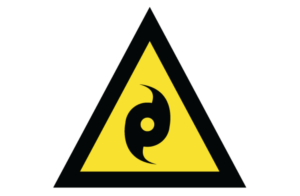AUSTRALIAN WARNING SYSTEM — CYCLONE ADVICE | STAY INFORMED

UPDATE — THIS WARNING HAS EXPIRED. CHECK FOR UPDATED WARNINGS on the Emergency Management Dashboard (dashboard.trc.qld.gov.au).
STAY INFORMED — Tablelands Region — Tropical cyclone as at 4.44pm Monday 22 January 2024.
Warning level — ADVICE
Warning area — Atherton Tablelands Region.
This warning is from Tablelands Regional Council.
A slow-moving tropical low in the central Coral Sea is likely to become a tropical cyclone late tomorrow. As it intensifies, the system is expected to track southwest over the next few days. It will most likely cross the Queensland coast between Innisfail and Airlie Beach on Thursday.
Stay informed
- Go to our Emergency Management Dashboard (dashboard.trc.qld.gov.au) for the latest weather warnings, emergency contacts, road closures and conditions, power outages, news from our Disaster Coordination Centre, links to ABC radio and key social media.
- Visit the Bureau of Meteorology (bom.gov.au/qld) for weather information.
- Listen to our local radio stations.
What you may have to do over the next few days
Check or make an emergency kit that includes:
- battery-powered radio to listen to warnings
- torch and spare batteries
- tinned and packet food and bottled water to last five days
- important medicine
- important papers (like ID, insurance papers and passports)
- first-aid kit
- mobile phone, charger and charged power bank
- toilet paper, face masks and hand sanitiser.
If you have very young children ensure you have enough nappies, wipes, bottles and formula or baby food for up to five days. Plan what you will do if you do not have access to a fridge or microwave because of power outages.
If you have pets pack enough pet food for five days, a lead and/or crate.
Make sure friends, family and neighbours know about the cyclone and help them if you can.
If you find it hard to move quickly or have special or medical needs:
- Make sure you have enough medicine for at least one week.
- If anyone in your house uses powered medical equipment, like a dialysis machine or ventilator, decide now where you will go in case you lose power.
- Call your support person or service to organise transport in case you need to leave.
- Leaving early is safer than waiting.
If you have a boat or jetski:
- Prepare early. If possible, remove your boat, jetski, canoes and kayaks from the water and store securely on land.
- If your boat is kept on the water, check your moorings and get ready to relocate it to a safe mooring.
The next update will be when the situation changes.
